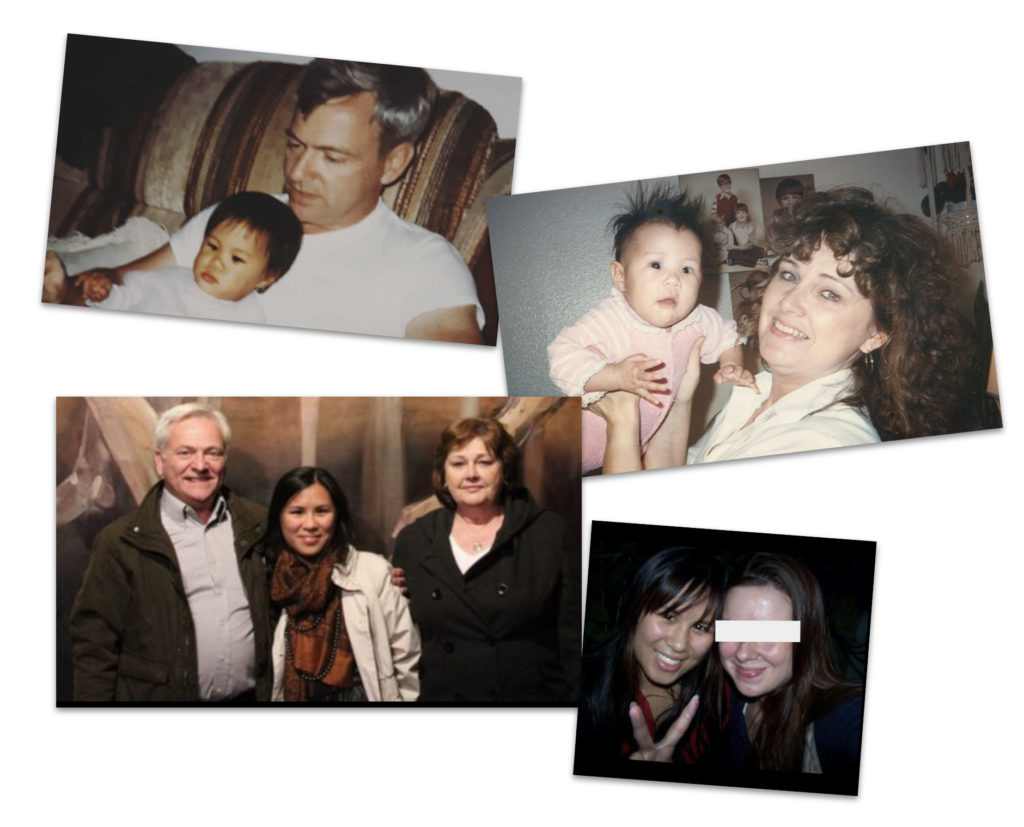
When I was in high school, I was asked to perform the only Asian character in the school play, but due to being raised in a white American family, I couldn’t.
I’d heard an Asian accent once or twice on TV sitcoms – often by non-Asian characters who were making fun of Asians or from Asian characters who were playing up an accent for laughs.
My parents tried to help – but they were just as lost as I was.
After going through a lot of trial and error trying to study and learn how to do a Chinese accent, the Theater Director came up to me one day during rehearsal and suddenly, unceremoniously, I was fired.
On opening night, a white actress performed the role. She even asked me to help her with her makeup – to make her eyes look more “Asian” as if we Asians just paint our eyes on every day.
Working as part of the theater club crew, I was in charge of running the spot light.
I lit her up as she stood on stage with an elaborate, brightly colored “Asian” costume, and as her cartoonish Asian accent got the biggest applause of the night.
I was never cast in a role again.
As a kid, this whole situation felt wrong and unfair on a deep level, but I had no words to express or process it. I had no Asian friends to talk to, and my “colorblind” white parents (bless them) just didn’t see the problem. It was the first time (but not the last time) that my Asianness was viewed as valuable by strangers – and that I was discarded for being “not enough.”
It was the first time that being an Asian transracial adoptee made me feel different from everyone else in a fundamental way. That no matter how much I identified as white, others saw me as Asian… and my role in the world would be limited by how others saw me.
I would learn later on that these complex feelings and situations are common and unique to the transracial adoptee experience, and make up a part of the culture of the global transracial/intercountry adoption community.
Adoptee stories have been told by non-adoptees who often get stuff wrong – harming our community in the process. But after recent films such as Joy Ride and Blue Bayou caused strife in the adoptee community for depicting adoptee stories without involving actual adoptees in any major creative role, and after the recent revelation that The Blind Side may have been based on a lie, the adoptee community agrees it’s high time for a film to be made by us, for us.
– Lee Milby
(birth name, Linh Ngoc)